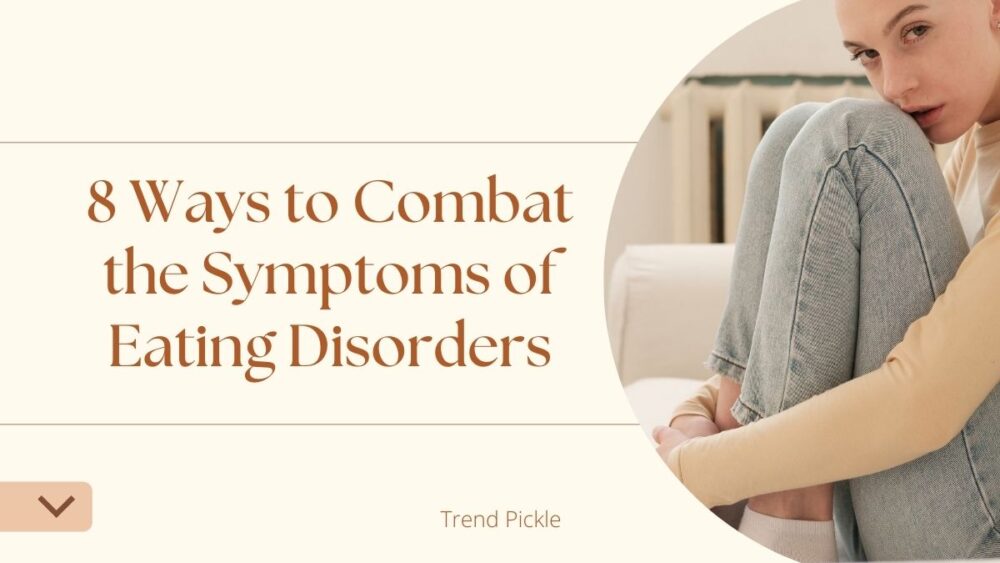Presented by BetterHelp.
Symptoms of eating disorders can vary from not eating at all to eating a lot to simply having disordered thinking regarding food. The one thing in common with all eating disorders is the stress and anxiety that come with the compulsive and obsessive symptoms someone may experience.
If you have been diagnosed with or suspect you have an eating disorder, read on to learn eight ways to combat the symptoms and live a healthier and happier life.
Stop Counting
One of the many compulsions that people with eating disorders experience is counting. This compulsion can take the form of counting calories or weighing yourself often. It’s usually a very difficult behavior to stop.
When we say “stop counting,” we do not mean it is as simple as turning your mind off and stopping it. However, participating in therapy such as exposure therapy for eating disorders is one way to stop this behavior for good and not have the urge to partake in it as much.
See an Eating Disorder Specialist
One of the best ways to reduce and combat symptoms of eating disorders is to see a specialist who can help you. It’s okay to admit if you can’t help something on your own. Millions of people struggle with eating disorders daily, making it one of the most common disorders on the planet. You’re not alone.
Therapists are available online and in-person to help you talk through your eating disorder symptoms. Whether you’re struggling with anorexia, bulimia, binge-eating disorder, or ARFID, a therapist can help. They have specific resources and tools to help you understand your own mind and help you find ways to create a healthier relationship with food.
Experience New Cultures
If you have an eating disorder that tends to want to restrict eating, it may be helpful to widen your scope. For some people, this is not a good idea. If you feel that having more options in food will overwhelm you, skip to the next step.
Learn some new recipes online from cultures around the world. Make it a challenge to eat a dish from every country globally, trying one each day. When you make eating fun and interesting, you may find that food doesn’t seem as scary to you in those moments.
Find a Safe Food
You may have heard of a “safe food” before. In eating disorders, a safe food is one that does not make you feel as bad as others when you eat it. This tip mainly applies to those with eating restriction compulsions.
A safe food can be anything, from pizza to salad to fruit. If you can identify a food that makes you feel okay to eat, try to make that food on days when you’re having more difficulty with eating. It’s okay to eat it every day if you need to.
Find New Ways to Appreciate Your Body
Appreciating your body is something that doesn’t come easy to anyone with an eating disorder. However, this is less about learning to love your body and more about discovering ways to see how your body functions for you and why it’s essential to keep it healthy.
Try some of these things to learn more about your body:
- Physical exercises
- Swimming
- Learning about your anatomy
- Mindfulness practices
Get Outside
For any mental health condition that causes stress, being able to get out of the home can be super beneficial. On days when you’re struggling with your eating disorder, leaving home can help by allowing you to change your body’s position and focus more on your outer world instead of your thoughts.
Nature is also known to be healing for your mental health. It may not cure your eating disorder, but it will give you some perspective and may even calm your anxiety.
Talk to Someone You Trust
Humans are social creatures. Whenever we have an accomplishment or something happy, we want to share it with those we love. It is the same with complex topics and suffering, as well.
If you haven’t spoken to someone about your eating disorder, you may want to. Make sure the friend or family member you choose is someone who will not judge you or try to hospitalize you for no reason. You want someone you can talk to who will try to understand what you’re going through and is open to learning more about eating disorders (especially yours, personally).
Don’t Shame or Judge Yourself
Eating disorders often come with a lot of shame and judgment. They can make you feel like you’re worthless. It’s essential to try to reduce the shame and judgment of simply having an eating disorder. It’s very common, and you’re not alone in the experience.
If you’re struggling with body image to the point where you cannot go a second without negative self-talk, you may want to speak to a therapist.
You can learn more about eating disorders on BetterHelp’s website. You will find that there are tons of articles and advice pieces there about eating disorders, which can help you find the resources you need to get help.

